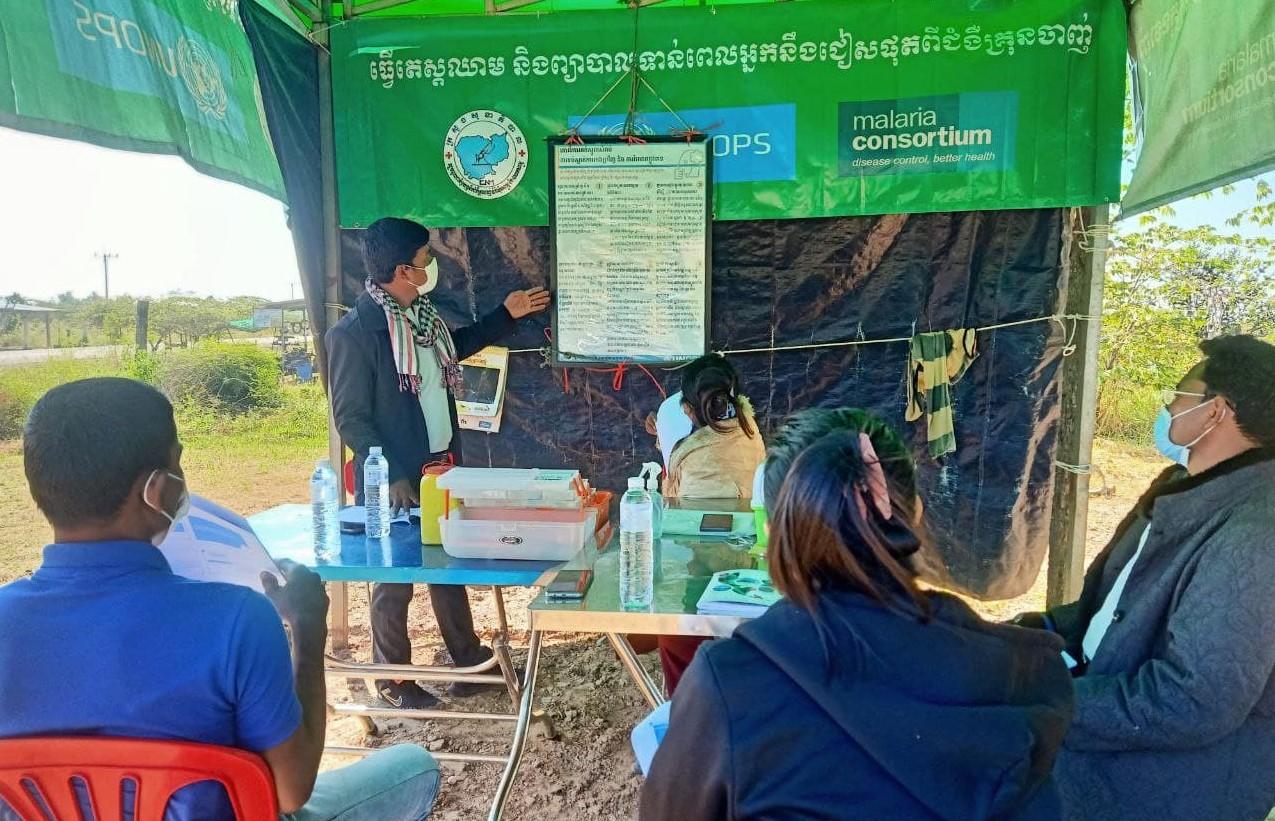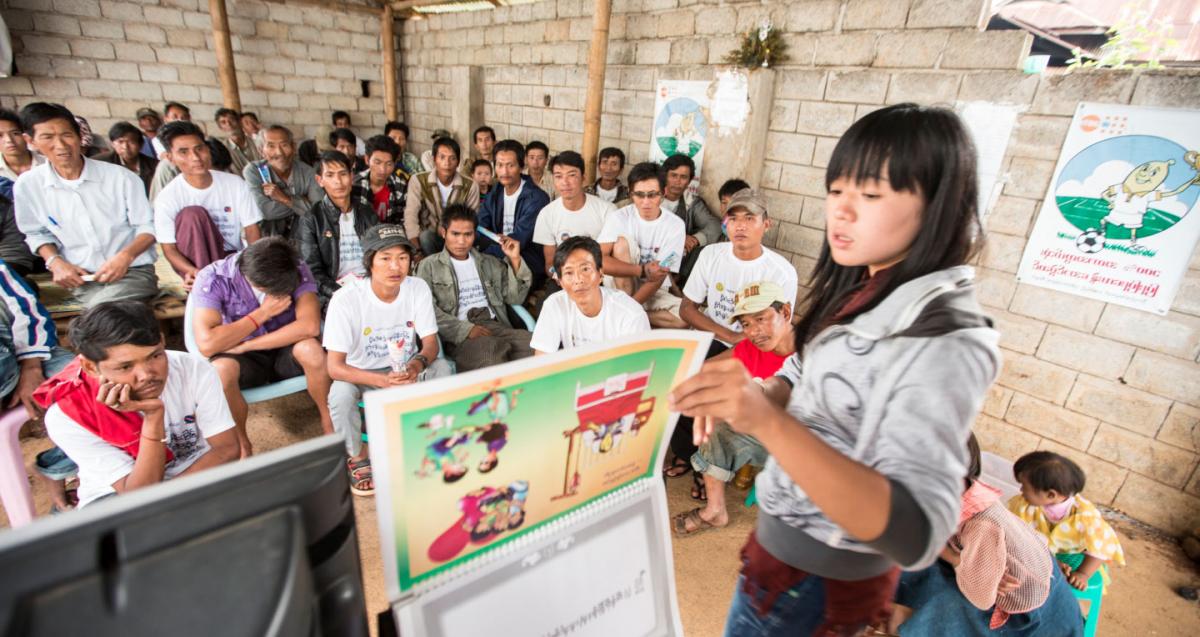Asia Regional Health Cluster (ARHC), as the Principal Recipient of the Global Fund grants, has initiated special measures to ensure the integration of gender considerations within the HIV, TB and malaria programmes at every stage of the planning, implementation, monitoring and evaluation since the beginning of the programmes in 2010. These dedicated efforts have had a specific focus on ensuring equitable and inclusive interventions within the programmes, leaving no one behind.
On top of this, ARHC began conducting advocacy and raising awareness about the prevention of sexual exploitation and abuse (PSEA) among its partners in 2020. ARHC conducted necessary training for Sub-recipients (SRs) implementing Global Fund grants during 2021–2023 in the Greater Mekong Subregion – Cambodia, Lao PDR, Myanmar, Thailand, and Viet Nam – with technical support from the UNOPS PSEA team in 2020 and 2021. SRs are implementing PSEA-related activities to meet PSEA minimum requirements in three years (2021–2023) during Global Fund grant implementation.
Completed PSEA orientations and training for Sub-recipients
PSEA orientations were provided virtually in mid-2020 (June to October) to all SRs under the management of UNOPS ARHC during the grant-making kick-off meetings for their project planning for the 2021–2023 grant. Based on the PSEA risk assessment in late 2020 for CSO and NGO SRs, ARHC conducted a series of PSEA focal point training and refresher training as follows:
- PSEA minimum requirements training for CSO and NGO SRs was conducted in late 2020 and 2021 before grant implementation to provide all the required activities for PSEA as well as the PSEA concept and principles. A total of 104 participants (M 54, F 50) from 31 organizations were trained.
- PSEA focal point refresher training was conducted in Q4 2021 for Cambodia (3 SRs) and Myanmar SRs (13 SRs). A total of 49 participants (M 28, F 49) attended this training.
- A PSEA workshop for Myanmar SRs was organized in July 2022 for 38 participants (M 22, F 16).
- PSEA focal point refresher training in Q4 2022 for regional and Myanmar SRs was attended by 66 participants (M 26, F 40).
In addition, ARHC conducted a mid-term assessment at the end of 2021 and an end-term assessment at the end of 2022 to check the progress. ARHC has been supporting SRs in relation to PSEA minimum requirements on a day-to-day basis as per their needs and requests.
PSEA minimum requirements implementation by SRs
ARHC has worked with 27 SRs1 under the Global Fund grants in five countries (see Annex 1: Number of CSO and NGO SRs by country in 2021–2022) on PSEA in 2021 and 2022. These SRs were requested to meet the PSEA minimum requirements by the end of 2022 (see Annex 2: Eight key areas of the PSEA minimum requirements). ARHC has put efforts into system establishment and capacity building of the CSO and NGO partners in the current grant cycle (2021–2023). The key achievements are:
- 27 SRs (100%) assigned PSEA focal points;
- 26 SRs (96.3%) have organizational PSEA policies or codes of conduct that incorporate PSEA principles;
- 26 SRs (96.3%) provided PSEA training and awareness to their staff and volunteers;
- 26 SRs (96.3%) established reporting mechanisms in their organizations and project sites;
- 25 SRs (92.6%) have developed response mechanisms (victim or survivor support, investigation and disciplinary procedures);
- 23 SRs (85.2%) have a safer recruitment process in terms of PSEA;
- Only 14 SRs (51.9%) provided PSEA awareness to communities and beneficiaries through regular community mobilization sessions or sharing PSEA materials in the project sites;
- A total of 6,544 attendees of PSEA training in 2021 and 7,269 attendees in 2022.
Further plans on PSEAH implementation
ARHC will advocate the prevention of sexual exploitation, abuse and sexual harassment (PSEAH), providing regular PSEAH focal point refresher training for CSO and NGO SRs. SRs will continue internal PSEAH training or sessions for all staff and volunteers for the rest of 2023 and in upcoming grants. Moreover, ARHC will focus on the following activities to be implemented:
PSEAH information dissemination to the communities in projects funded by the Global Fund and strengthening SRs’ reporting and response mechanisms so that the communities and beneficiaries can understand the concept of SEAH and raise a complaint related to that.
Promoting and monitoring 1) PSEAH information-sharing to the communities and 2) functioning reporting channels in each respective SR.
The CSO platform under the Regional Artemisinin-resistance Initiative (RAI) grant will contribute to monitoring CSOs’ field activities and collecting communities’ voices on PSEAH issues qualitatively. With this support, both the CSO platform and ARHC can provide necessary support and capacity building in the areas where SRs require it.
ARHC will support government entities to increase their awareness of PSEAH and to equip them to prevent and respond to SEAH according to the guidance from the Global Fund and updated guidance of the United Nations.
ARHC will continue to support PSEAH implementation for all SRs, government entities, NGOs, CSOs, and other institutions for those who are working with us through the Global Fund grants in the Greater Mekong Subregion.
-------------------------
1 This is only for CSO and NGO partners. It does not cover the government entities and United Nations agencies in this grant cycle. The number of SRs is not the same as the number of projects, as some SRs have two or more projects with ARHC for the Global Fund grants.



